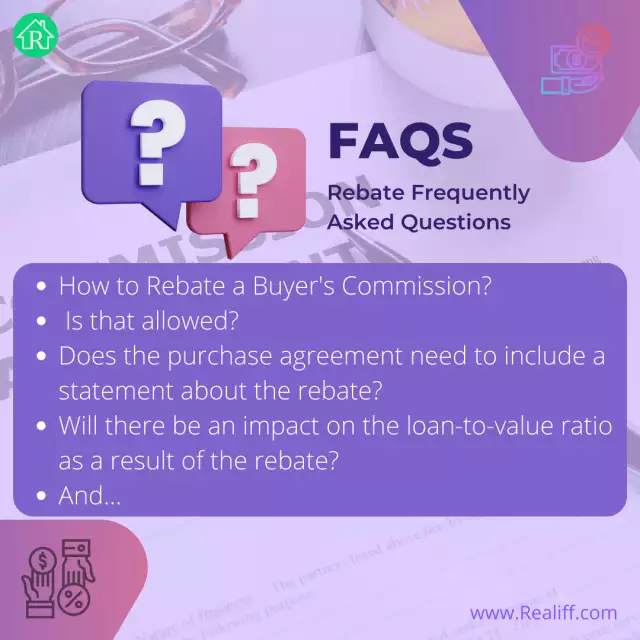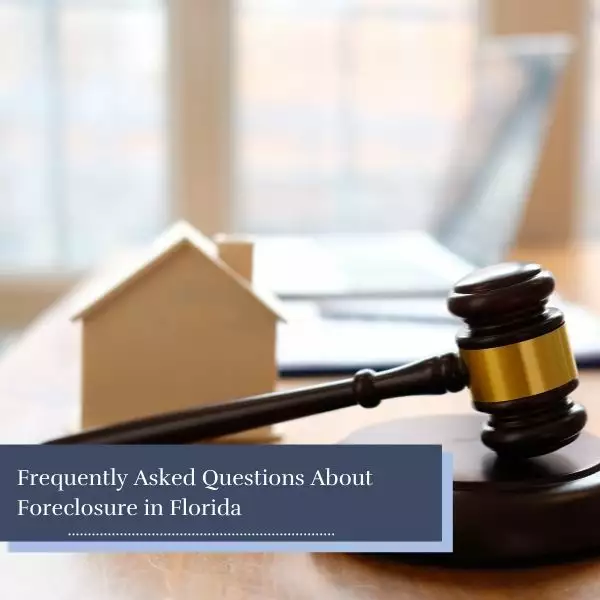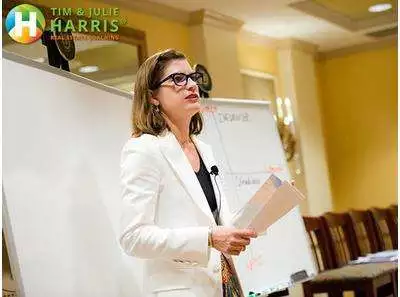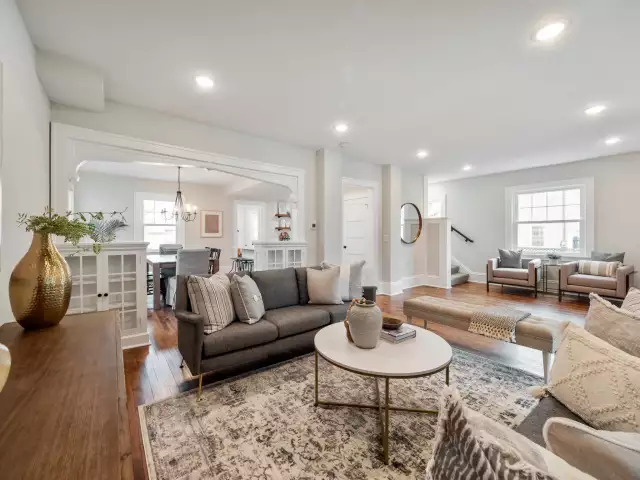Real Estate Cash Back At Closing Related Frequently Asked Questions
Real Estate Cash Back At Closing Related Frequently Asked Questions
Here, the most fundamental Cash Back questions answered:
Question No.1: What is cash back at closing?
Answer: After a buyer agrees to pay more for a property than its true market value, he or she can borrow more money than the residence is worth and obtain the excess revenues in cash, credit, or something else of value when the deal is done (closed).
A widespread misconception is that as long as the lender's appraiser accepted the sale price, everything is fine. The truth, however, is that the value of a house is determined by what a buyer is ready to pay for it and what the seller is willing to accept, not by the appraised value (whichever is lower). For example, if the seller is willing to sell their house for $280,000 to a buyer who agrees to pay that amount, the buyer and seller cannot agree to close the deal at $350,000, even if an appraiser determines that amount to be the home's value.
Question No.2: What is the downside of cash back at closing?
Answer: Cash back at closing is unsuitable for a variety of reasons, including the following:
- It deceives the lender into granting a mortgage loan that is more than the property's genuine market worth. If the borrower defaults on the loan, the collateral (in this case, the property) would be insufficient to cover the obligation.
- Cash-back offers to put the borrower in a negative equity position. If the individual suffers a financial setback, he or she has no equity safety net; that is, the individual is less able to refinance out of problems using the equity in the home.
- Housing is becoming less affordable as property values rise.
- Property taxes, which are based on property values, get inflated as well.
- When housing bubbles emerge as a result of artificially inflated prices, housing markets become unstable.
Question No.3: Is it ever legal for the buyer/borrower to get money back after closing?
Answer: Here, cash back at closing refers to situations in which the lender is misled into granting a mortgage loan for more money than the property is worth in order for the buyer to benefit cash when the deal closes. It is not about situations in which a seller, for example, offers the buyer a few hundred dollars to cover the expense of rectifying a few minor flaws identified between the signing of the purchase agreement and the closing.
There are various circumstances in which the buyer may be permitted to receive cash back after closing, including the following:
- You refinance your mortgage to cash out some or all of your home's equity.
- Your agent agrees to refund a percentage of his or her compensation at closing. This is a pretty ambiguous situation. Some lenders permit it, while others do not; therefore, if you (as an agent) choose to do so, make sure you completely declare it to the lender on the HUD-1 as a debit to the selling agent's compensation and a credit to the buyer. This must be reported to the IRS as well.
A better technique to deal with situations like these is for the agent to minimize the amount of his or her commission throughout the sale negotiation so that no money is transferred at closing. According to the majority of CPAs spoken with, this "credit" should be recorded as a reduction of their basis in the sales price. For example, if the buyer paid $300,000 for the property but only paid $290,000 with the lower commission, the official sales price is $290,000. In any case, complete disclosure is required, and all parties to the transaction must agree to the conditions.
- The buyer deposits funds into the escrow account to obtain a 100% loan and subsequently receives a credit. Because this is the buyer's own money, it is not considered cash returned at closing.
- Earnest money is frequently repaid at closing when the seller assists the buyer with the down payment and closing costs.
- When purchasing an income property, if rents and deposits exceed the down payment and closing expenses (perhaps with the seller assisting with a portion or all of either or both), those monies are sometimes transferred to the buyer at closing.
Question No.4: Can the seller offer the buyer cash at closing to cover property repairs?
Answer: If a minor issue is detected between the signing of the purchase agreement and the closing or final walkthrough, the seller is completely permitted to refund the buyer for the expense of repairs. Here, it means about a few hundred dollars at most, not thousands.
For costly repairs, such as a new central air conditioning unit, furnace, or roof, you have two options that are preferable to turning over cash to the buyer:
- The seller can have the repairs done before the closing.
- The seller can put money in escrow that is 1.5 times the projected cost of repairs and have the contractor paid out of escrow. When the repairs are finished, the seller receives the balance of the escrow account.
The seller should not just hand over the money for the repairs to the buyer because there is no guarantee that the repairs will be done. If the repairs are not completed, you may find that the collateral used to secure the loan is defective. If the borrower fails on the loan, the collateral is not worth what the lender thought when the loan was issued.
Question No.5: What if the seller throws in furnishings or other perks?
Answer: Many people appear to believe that it is OK for a buyer to agree to pay more for a home because it is furnished or the seller agrees to throw in some extras, such as a car. This approach, however, is unacceptable when a buyer borrows money to acquire a home. It has been seen instances when a buyer agreed to pay $30,000 more for a home because the seller agreed to leave furniture worth only a few thousand dollars. It is not sure who got the extra cash, but something didn't smell right about that transaction.
Of course, a lot of houses were sold when one or two pieces of furniture or a couple of appliances were included in the deal. These are the products that the buyer demands and that the seller agrees to include in order to complete the transaction. This is absolutely okay, but agreeing to pay much more for the home because the seller has included a few additions goes too far.
Why are such configurations incorrect? For these reasons:
- A mortgage loan is secured by the value of the home and the land on which it is built, not by the contents of the home or other extras included by the seller. If the homeowner defaults on the loan, moves out and takes the furnishings, the lender is unlikely to be able to sell the house for enough money to cover the loan debt.
- Paying more for a home than its genuine market value artificially boosts local property values. This reduces the affordability of houses for prospective purchasers, raises property taxes, and creates unstable housing markets.
Question No.6: What happens if the house appraises for more than the seller is ready to accept?
Answer: The essential thing here is that "Seller will accept some amount of money, for example, $280,000." Because the seller agrees to take $280,000 for the property, regardless of how much the home appraises for, it is the property's sales price and should be noted as such on the closing documents. If the appraiser had been informed that this was the net sale, the property would have been valued at no more than $280,000. (As a result of being left in the dark, appraisers are sometimes drawn into the fraud arena.)
Question No.7: Is cash returned at closing acceptable if all transaction facts are completely disclosed to the lender prior to closing?
Answer: This is a deceptive question. Most persons who ask this inquiry are not fully revealing the transaction details to the lender. If they were, the loan would never be approved. In many situations, the con artists generate two HUD-1 statements: one that discloses everything at closing and another that withholds key facts and is delivered to the lender. The con artist fools everyone into believing that the details have been completely revealed by including them on one of the HUD-1 statements when they have not.
In other circumstances, the HUD-1 may have all of the facts, but the loan is pushed through the approval process by someone else. Prior to the present mortgage catastrophe, several lenders were so eager to get loans approved that their standards were dropped. Despite the fact that all transaction information was revealed at closing, the outcome remained the same: lenders approved loans that should have been refused outright. Some argue that this is the lender's fault, yet the cost is shared by all.
Question No.8: What if the seller agrees to accept a lower offer at the last minute?
Answer: Buyers will frequently sign a purchase agreement subject to the home passing inspection and then negotiate for a seller credit or cash back immediately before closing. They may request extra repairs, claim that their finances have changed, or cite another reason why they require credit or cash back to close. At this stage, the sellers may be so bored with the process that they agree just to get the deal closed.
When instances like this occur when the buyer and seller agree on a lower sales price, the documentation must be revised, the lender notified, and the loan documents and approval must be reworked. There is a problem if the concession is not revealed to the lender. Buyers and sellers are free to negotiate anything they wish, but everyone engaged in the transaction must be informed.
An amendment agreement is insufficient to complete the deal.
Still, have questions? Comment below. Realiff will answer you ASAP!







